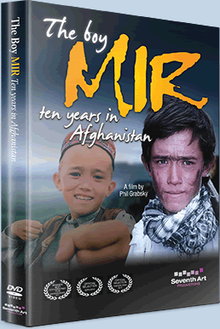This is the second in a series of behind-the-scenes blogs about the story behind the making of a documentary - in this case, my film, "Life Online," the story of a family in Florida that's uniquely dedicated to the "YouTube" lifestyle. Interested? Donate at http://tinyurl.com/acegrw4
These blogs and vlogs will trace the evolution of this project as I prepare, shoot and edit "Life Online." I hope these prove helpful to aspiring filmmakers.
There are a number of films that have inspired my upcoming documentary, "Life Online," the story of a family that has embraced the YouTube "lifestyle." With three boys and their mom all creating content for their individual lifestyles, and all family members contributing to their non-stop production "studio," this film will offer a great perspective on why more and more people are deciding to express themselves publicly through YouTube and social media. "Life Online" asks, 'What happens to family life when there's an audience to serve?'
Three documentaries in particular loom large in my decision to tackle this project:
Considered by some as the original 'reality show,' "An American Family" was a multi-part public broadcasting series featuring the life of a "typical" suburban family in Santa Barbara in the early 1970's. They turned out to be anything but typical, as their family literally disintegrated under divorce and a series of dramatic revelations by each family member. Unlike today's "reality" programs, this documentary wasn't subtlety moved along or even scripted by the producers. Events simply unfolded from May to September of 1971, during which time Producer Craig Gilbert's team shot hundreds of hours of 16mm film. It's also worth noting that shooting a film like this in the early 1970's required cumbersome camera, lighting and audio equipment, creating a disruptive environment that some suggest may have been a provocative factor (among others) in the family's demise.
I'll long been fascinated with the patience, dedication and trust necessary to create "An American Family." Unlike so many of today's "reality" shows that pretend to portray life as it unfolds, this program felt authentic.
Oscar-winning director Michael Apted, who has moved back and forth between feature films and documentaries, continues to create the "7 Up" series of feature documentaries, an extraordinary portrait of a group of ethnically and economically diverse Britons whose lives he has revisited every seven years since they were seven years old - now, over fifty years. Inspired by the Jesuit saying, "Give me a child until the age of seven and I will give you the man," this is a uniquely revealing portrait of human nature. The "7 Up" films not only prove that personality may indeed be in place, but they're also an extraordinary tribute to the resilience of human beings in general. Apted shows a respect for his subjects that offers a great example for any filmmaker. (Here's a review of the latest film in the series, "56 Up")
Respect for the subject was the central factor in the effectiveness of "The Boy Mir." Director Phil Grabsky's film follows a peasant boy in Afghanistan from ages eight to eighteen, during the dramatic events of the last decade, as he and his family struggle to survive amidst the chaos and then emerging new freedoms transforming their world. Grabsky returned to Afghanistan periodically over ten years to tell Mir's story, creating a film that personalizes a story that exists for the West mostly in impersonal headlines. (Here's my review of the film; I had an opportunity to interview Grabsky about 'The Boy Mir. ' Here's my blog, 'The Minute You Pull Out a Camera, You're Intervening').
"An American Family," the "7 Up" series and "The Boy Mir" are varied in style and approach - but share three important elements that, I feel, make them effective films: Dedication of the filmmakers, trust and mutual respect between the filmmakers and their subjects, and uncommon patience. If I have the opportunity (Consider contributing here) to create "Life Online," that's what I'll be striving for.




No comments:
Post a Comment